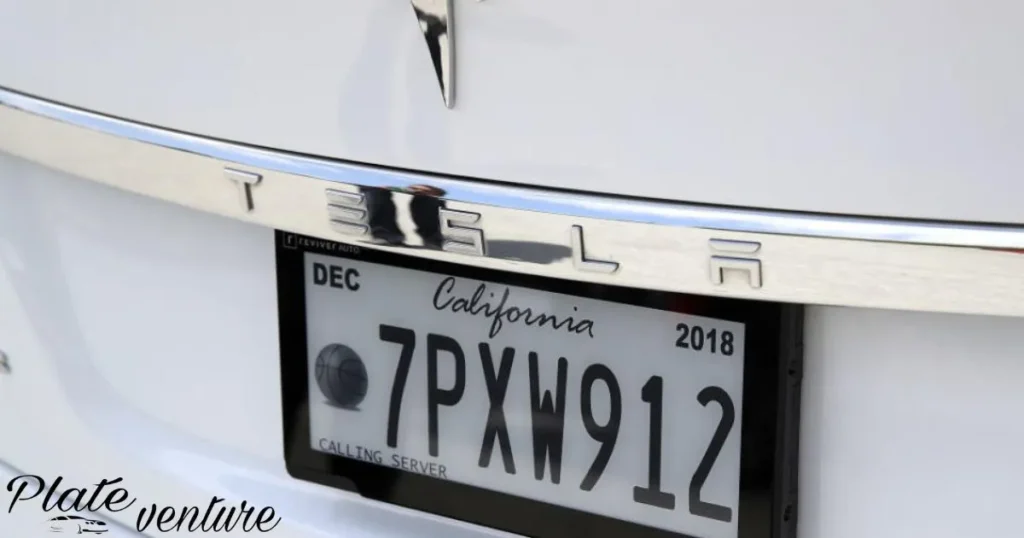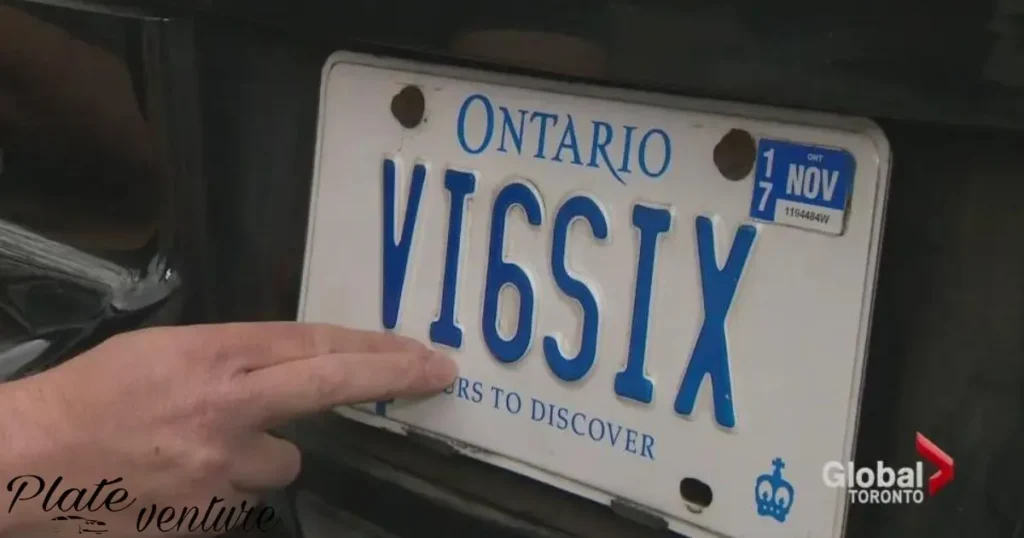Finding a person’s home address using their license plate number is generally not possible for regular people. License plate records that link to a registered address are protected information, kept private by state vehicle registration agencies. However, certain authorized agencies can legally access these records for investigative purposes.
Can you find someone’s address from their license plate? While it may seem intrusive, law enforcement and government groups can sometimes access this private data to identify a vehicle owner. Access is restricted to protect people’s locations and identities. But if you’ve ever wondered whether a license plate could lead directly to someone’s home, the possibility exists under special legal circumstances.
License plate numbers are tied to other personal information in official records, like a person’s name and home address. But these links are confidential data, guarded by privacy laws limiting access only to verified situations of need. So an average person cannot use a plate number to easily locate where someone lives without appropriate approval.
Possible To Locate An Address Using A License Plate Number
While a license plate number alone does not reveal a residential address, there are some methods that can be used to try to determine a location. Law enforcement and private investigators have access to databases that can link license plates to registered addresses.
However, this information is restricted for privacy reasons under the Drivers Privacy Protection Act (DPPA) 1. For the average person, a license plate alone reveals limited information.
What Methods Allow Discovering A Residential Address From License Plate Data?
As mentioned, law enforcement and licensed private investigators have access to databases that connect license plates to registration information and addresses1. There are also some paid services that claim to provide license plate lookup services.
But the accuracy and legality of these services is questionable. Overall, the privacy restrictions in place make it very difficult for the average person to reliably locate someone’s home address using just a license plate.
What Privacy Issues Exist With Accessing Personal Details Via License Plates?
There are significant privacy concerns if license plate data is abused to track people without consent. The potential to identify driving patterns, frequently visited locations, and home addresses raises issues like stalking, burglary, Look Up Someone’s License Plate and other criminal concerns4.
That’s why laws like the DPPA restrict access to DMV records to protect privacy. Still, technologies like license plate readers and databases likely contain extensive personal data that could be exploited if not properly secured.
Are There Legal Concerns With Looking Up Locations Using License Plate Information?
Yes, it is generally illegal to use license plate data to look up private address information without proper authorization1. There are fines and penalties for violations of privacy laws like the DPPA. Even services that offer license plate lookups could be in violation depending on the specifics.
In general, the average person should not attempt to access personal address details using license plate numbers without going through official channels.
Legally Access An Address From A License Plate

No, in most cases it is not legal to access a home address from a license plate number without consent. The Drivers Privacy Protection Act (DPPA) prohibits state DMVs and their contractors from disclosing personal information from motor vehicle records, including names and home addresses, without express consent4.
There are some exceptions for legitimate government and business needs. Overall the DPPA aims to protect driver privacy.
Is A License Plate Considered Private Personal Information?
License plates themselves are not legally considered private personal information. As they are displayed publicly, there is no reasonable expectation of privacy for the plate number5. However, the DPPA does aim to protect against plates being used to access other private data like names and home addresses without consent.
Do Laws Prohibit Using License Plates To Find Home Addresses?
Yes, the federal DPPA prohibits using license plate lookups to find home addresses, except for specific permitted purposes like government functions and safety recalls4. The law sets penalties for unauthorized access to private data from license plate numbers. However, some states may have broader privacy protections than the DPPA.
Cases Have Set Precedent On License Plate Privacy
5 short cases that have set precedent on license plate privacy:
- United States v. Yang (2020) – The Ninth Circuit Court held that the defendant lacked standing to challenge an ALPR search of his rental vehicle after the rental period expired.
- Commonwealth v. McCarthy (2020) – The Massachusetts Supreme Judicial Court ruled that limited use of ALPRs did not violate constitutional protections against unreasonable searches in this particular case.
- Carpenter v. United States (2018) – The Supreme Court ruled that accessing historical cell site location data requires a warrant, setting precedent for location privacy.
- United States v. Jones (2012) – The Supreme Court found that attaching a GPS device to a vehicle and using it to monitor movements constitutes a search under the Fourth Amendment.
- NCLA v. City of Coral Gables (2022) – The NCLA filed a legal brief arguing the city’s 3-year ALPR data retention violates the Fourth Amendment right against unreasonable searches. The case is still pending.
How Do Regulations Handle License Plate Data Disclosure?
The DPPA requires express consent for most disclosure of personal information from motor vehicle records4. For data that is obtained from license plate scanning, like dates, times, and locations, regulations vary by state. Some states prohibit data retention while others allow indefinite storage. There are still many open questions on handling this data.
Sources Offer License Plate Lookup For Addresses
There are some paid services and websites that claim to offer license plate lookup to find associated addresses, such as recordsfinder.com and faxvin.com, however the search results indicate that access to personal information through license plate searches is restricted by the
Driver’s Privacy Protection Act (DPPA), so addresses are not made available through these services without specific authorized reasons.
Which Databases Can Cross-Reference License Plates With Residences?
The search results do not clearly identify any databases that reliably cross-reference license plates with residences. Some services claim to provide personal information linked to plates, but warn that actual address data is protected by law in most cases. It seems unavailable without police or legal involvement.
Are Paid Services More Effective For Connecting Plates To Locations?
Paid services do not appear more effective for connecting license plates to locations or residences, since address information is legally protected. The results indicate that civilians generally can’t access personal data from plate lookups, regardless of whether the search is free or paid.
How Accurate And Current Are Address Records Tied To License Plates?
The accuracy and currency of address records tied to license plates is unclear based on the search results, since this type of personal information seems inaccessible without specific authorized reasons according to the DPPA. So for civilians, address data linked to plates appears unreliable and out of date.
What Alternatives Assist With Linking License Plate Numbers To Homes?
The search did not reveal good alternatives for civilians to connect license plate numbers to home addresses. The results repeatedly indicate it is illegal in most cases. Potential options are contacting law enforcement if a crime was witnessed or consulting an attorney for advice if access is imperative.
Ethical To Find Addresses From License Plates
There are ethical concerns with using license plate numbers to obtain personal addresses without consent. The DPPA law aims to protect driver privacy by restricting access to DMV records. However, some states do allow address searches given a valid purpose like legal proceedings or research. There should be reasonable justification before attempting to identify individuals from their license plate.
Public Records Justify Address Discovery Via Plates
Public records do not allow address discovery from license plates. The DPPA protects driver data. Some websites falsely claim to find addresses. Police can access information for investigations. Attorneys may request data for cases.
| Who | Can Access Info | Reason |
| Public | No | Privacy laws |
| Police | Yes | Investigations |
| Attorneys | Yes | Legal cases |
In short, civilians cannot use license plate numbers to find home addresses. The information is protected for privacy under the Driver’s Privacy Protection Act (DPPA).
Police and lawyers can access driver’s license data in certain situations like criminal cases. But everyday people cannot look up addresses from license plates. Websites that claim to offer this service are likely scams or using outdated information. The DPPA strictly controls driver information to prevent unauthorized access.
Could License Plate Address Searches Enable Harassment?
If random people can easily obtain home addresses from license plates, it could lead to stalking, unwanted contacts, or property damage. For example, a disgruntled driver may react aggressively after a road incident.
While far-fetched, even pranks based on a discovered home address could become harassment. There is potential for misuse of easily accessed personal information.
What Precautions Apply When Attempting To Locate Owners?
Those with permitted purposes for linking plates and addresses should still take precautions around data handling. They should restrict access on a need-to-know basis, avoid public sharing of results, and delete information when no longer required. Data minimization, access controls and limited retention help mitigate privacy risks even if initial collection was justified.
Should Formal Processes Restrict License Plate Address Links?
Given the privacy implications, formal governance around access to plate and address links seems prudent. Policy options include mandatory permissible use vetting, added transparency like logging and audits, or rate limiting searches against misuse.
Creating friction against casual access reduces opportunities for inappropriate data use even if permitted for legitimate Purposes.
Methods Exist For License Plate Searches Of Addresses

Private investigators can legally access some driver information from license plates in certain situations, like insurance claims or approved investigations. However, permissions and fees often apply. Most states allow formal record requests through the DMV, but waiting times and restrictions exist. Independent search firms also claim access, but reliability varies.
Can Private Investigators Use License Plates To Pinpoint Addresses?
Yes, private investigators can legally obtain driver addresses from license plates with proper documentation, permissions, and fees in most states. Success depends on state laws and case details. Quick unregulated searches are unlikely to yield accurate, up-to-date addresses.
Are There Technical Approaches For Address Discovery From Plates?
No clear technical approaches exist in the search results, beyond formally submitting record requests or using third-party search firms. The reliability of independent firms seems questionable4, and technical workarounds for regulated DMV searches are unlikely.
What Public Tools Offer License Plate Searches By Location?
No fully public tools for address lookups from license plates are indicated. Formal DMV requests are needed in most states, which have restrictions3. Some paid search firm sites claim quick results4, but public access appears limited.
How Successful Are License Plate Lookups To Find Households?
Success varies greatly by state and situation. Formally submitted DMV requests may yield valid addresses if permitted, but can be slow and restricted3. Independent search sites are unreliable for households4. Overall success seems limited without formal processes.
Frequently Asked Question
Can I Do A License Plate Search And Get Someone’s Home Address?
A license plate search alone usually won’t provide a home address, but could lead to finding the vehicle owner to then determine their address.
Is It Illegal To Find An Address From A License Plate Number?
No, license plate numbers are public information so a search itself is not illegal, but intending harassment or other abuse with the found address would be.
What Website Lets You Search A License Plate To Find An Address?
While some websites claim to find addresses from license plates, official vehicle registration records that disclose addresses have restrictions to protect privacy.
Can Someone Find Out Where I Live From My License Plate?
It’s unlikely, but not impossible, for someone to determine where you live from your license plate number alone unless additional public records help connect that plate to your name and address.
What Precautions Can I Take If I Think Someone Got My Address From My Car’s Plate?
You can report concerns about possible harassment to law enforcement and consider getting a license plate cover to obscure the full number when parked to help prevent further tracking.
Conclusion
It is possible to find a person’s name and address from their license plate number, but there are restrictions. Formal requests to the DMV often allow access to driver records and addresses, if permitted under state law. However, fees, paperwork, and waiting periods usually apply. Private investigators can sometimes obtain personal details as well, but only for approved reasons.
Overall, while a license plate can lead to locating someone’s household in certain situations, quick and unregulated address lookups are unlikely. The reliability of independent online search websites seems questionable. Success depends greatly on specific regulations in each state, the details of the case, and following formal procedures through proper legal channels.








